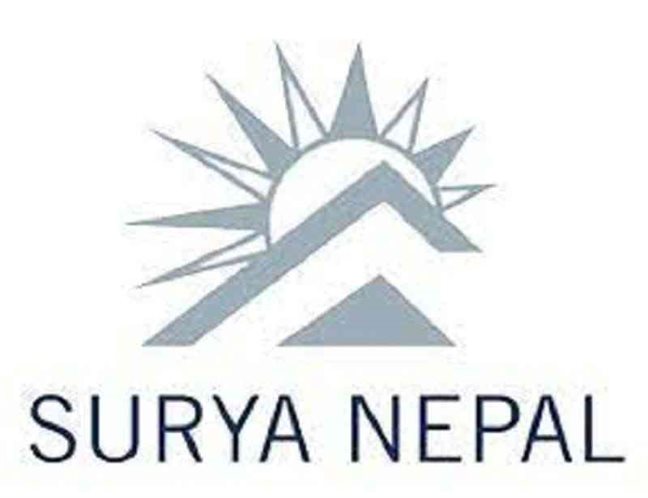29th July 2021, Kathmandu
Nepali young scientist Dr. Sameer Maskey has set up a company fusemachines based on Artificial Intelligence (AI). Founded eight years ago in the United States, the company also has branches in Nepal. Maskey, who is in the process of producing thousands of AI engineers in Nepal, has recently been conducting training to teach AI to non-technical people as well. It’s possible to impact the development of the country, national and international activities of the fusemachine.
Let’s start with AI or Artificial Intelligence. Explain in a language that even ordinary people who have no knowledge of this subject can understand. What is AI?
AI is a type of machine that can produce many types of inputs. It may include what we say or see. By taking such data, it makes reasoning and can make its own decision on the same basis.
Thus the decisions made by the machine are useful and helpful to man. A machine with this type of plant is called AI. For example, we can take a self-driving car.
This takes pictures and videos as input. By reasoning a number of pictures and videos, it indicates that the red light should be stopped and the vehicle is stopped on that basis.
It became clear to you that this is also an area of the latest technology. But you are now conducting training called ‘AI to Go’ to teach this subject even to non-professionals. Is it necessary for non-professionals to know this subject?
We launched the AI Education for Nepal program two and a half years ago. The aim was to give students from all corners of the country the opportunity to learn AI technology.
The program was targeted at people with a technical background and who want to get involved in technology. That training is still being conducted. From which many have got the opportunity to study AI technology till now. If AI technology is to be widely used in Nepal, it is equally important for technical as well as non-technical people to understand this issue.
Bank employees need to know this topic and its importance to understanding how to automate a loan application and what to do for it, even if it is not at the basic level of model development. With this kind of need in mind, we have now brought this ‘AI to Go’ program.
What can participants expect from this training?
In this training, students and other participants can learn about what AI is. Its main foundation is machine learning. In this training, we will teach you what it is and how it works.
In addition, basic knowledge of computer business systems (CBS) and natural language processing (NLP) can be expected from this training. Learn how a computer business system works and how it is built. Applications like Google Home based on natural language have come to the market.
It also teaches us how such devices understand what we say or write and act according to instructions. Finally, the impact of AI is on the society. How this affects the employment sector, whether it affects the privacy of the person or not, etc. will also be discussed during the training.
How did you realize that this kind of training is needed in Nepal?
You may have read some reports. By 2030, AI technology could have a trillion-dollar impact on the global economy. With this kind of forecasting in mind, various developed countries have begun to use AI technology with high priority.
A country like ours lacks the necessary resources. Education opportunities are also low. How can we bring and use AI technology in such a country, so that even non-technical people can get information about it?
How the hotel can predict its demand, how to determine the room price according to the season, how to find out where insects can be found in large agricultural areas, how to use pesticides in such places using drones.
Make a decision based on the customer’s past background. Entrepreneurs can understand this kind of importance. In that case, Nepal could benefit to some extent from the trillion-dollar market. There are only a few days left before the training starts.
Can you tell us a little bit about how to participate and how much it costs?
Many have now signed up. We have a website. You can go there and sign up and register for the training. We have fixed a fee of Rs.7,000 for the training. Payment can be made online from the website.
Training is in Nepali or English, in which language?
The trainers in this training are all Nepali. But the guest lecturer is also an American. They send in English. But Nepali instructors can take classes in any medium of Nepali or English as per the demand of the participants.
What is the status of your other program called AI Education for Nepal which started about two years ago?
We have collaborated with schools and colleges in the AI Education for Nepal campaign. Accordingly, studies are still being conducted in many places. Including Herald College, Patan College. Through this program, students are getting an AI education.
The study is being done with the help of our own textbooks and manpower. Hundreds of students are getting to study AI through this program. We have brought the current AI-to-go training as the second link to that.
AI technology is being used from social media to mobile cameras. But where is it being used in Nepal now, or what is the situation in Nepal in this area?
AI has not yet been used in Nepal. The phone opens as soon as you look at the screen; it is possible because of the AI. This technology is used in devices and phones manufactured abroad.
But the necessary work has not been done on how to use it in various industries in the country. It has potential from agriculture to the banking sector. AI-based drones can be used to deliver medicine to villages.
There are no doctors in rural areas. X-rays and CT scans are not available in such places. In this case, only machines based on AI technology can do such things. Similarly, it can be used in many places in the field of tourism and industry.
The government is running a campaign with the objective of creating a digital Nepal. How can this be taken?
Digital Nepal is a good goal. Through this framework initiated by the government, many digitization programs have been taken forward in eight areas. Data is needed to use AI technology.
Digitization of any field means data collection there. Where it is not digitized, AI cannot be used. So Digital Nepal and AI seem to be going hand in hand.
How likely is AI technology to be a challenge to human life, and how can it be used as an opportunity?
Some are even interpreting it as a challenge. It is argued that when the loan process is automated, the employees working there will lose their jobs. It will take another 10-20 years for AI to replace employment.
With the advent of automation, new employment opportunities are being created accordingly. It means more about helping people than it is about completely replacing employment. The loan officer can complete 30 instead of 20 loan processors. This kind of facilitation is provided by AI.
How satisfactory is the situation of Nepal in AI?
Anyway, work is being done here. Gradually more and more people are understanding AI. It is also creating a kind of excitement. We are also trying to educate many about it. Many companies seem to be trying to use AI.
Young people are trying to learn this new technology. But at the government level, the amount of work that should have been done for the use of AI has not been done. For this, all services have to be digitized first. Only then can AI technology be easily implemented.
What is the role of AI in the development of Nepal?
It involves two or three things. If we think about how to make AI products for Nepal’s own industry, AI can bring many transformations to Nepal. Medicine can be delivered by drone. Most of Nepal’s territory is hilly and mountainous.
It can take up to 4 hours to walk. We can make products that deliver essential supplies to such places. Such products can change Nepal’s economy.
If AI talent can be developed, that manpower can serve globally. In such a situation, the message that AI talent should go to Nepal may go. Due to which many companies can come to Nepal for such services.
The use of our services and products also plays a role in this. Nepal’s potential in this is very good. This is the dream of me and the fuse machine. Students and professionals should learn AI. Make products for Nepal and use them.
Nepal should be known all over the world as AI Talent. It is not too late for us to move in this direction. Eight years ago, this technology was not so popular. That’s when we started working in this area. Accordingly, the effect has already begun to be seen.
Corosella recently ranked Nepal among the top ten countries in the Emerging Countries for AI Talent Report. This is a very exciting topic for us. Therefore, the impact of AI education is already visible in Nepal. Can our AI Education for Nepal campaign go even further and reach number five in this ranking?
What should be the role of the government and the private sector in the use and promotion of AI technology in Nepal?
Two issues are most important. The government and the private sector should initially consider whether data is being collected and if so, how? Because AI is not possible without data.
As I said before, a loan requires historical data. This kind of data already exists in the banking sector but not in other areas. Therefore, the government needs to encourage the private sector and explain the importance of data.
Another thing is talent and education. Engineers are needed to build automation systems is the area in which we are working.
When it comes to data collection, the issue of security is also important. What is your opinion on this subject?
Data is a person’s property. Which data is being used by which company is a matter of interest and concern of the person concerned? The government also needs to be sensitive in the area of data privacy.
Companies themselves must determine the internal method of how data can be used on an ethical basis. It is necessary and important to collect a large amount of data.
At the same time, companies should be responsible for how they collect and use them. In this, the government should also prepare necessary policies and laws.
Fuse Machine has become an international company established in the United States. What is the company doing in the international market?
Many of our customers are in the United States. As an enterprise client, we are serving large hospitals, gaming companies, and school colleges.
We are selling product chatbots and fuse classrooms made by engineers in Nepal to both feature schools and colleges. We also offer Fuse Classroom and AI Education programs in the Dominican Republic, South Africa, Rwanda, Argentina, and Peru.
In a way, I am proud to be able to spread AI education from Nepal to other countries and show its impact. Nepal’s potential in this area is very good. We have a large young population. Who is hungry for education and opportunity?
AI is transforming the world economy. Nepal should be able to take advantage of even a small part of it. In order to advance it widely, it is necessary for all technical and non-technical people to take AI education.











